In a quiet metro car departing from Versova station after 5 pm on a Sunday in November, two lines instantly familiar with Hindi-speaking Indians broke out: “Baithe, baithe, kya kare? Karna hai kuch kaam, Shuru karo antakshari, leke Shahrukh Khan ka naam!”
The cry came from a handful of people, split on either side of the belt separating the woman’s compartment from the general. Heads stirred, eyes rose from the screens of phones, quizzical but amused. The setting might have been jarring, but the intent was clear: this was the beginning of antakshari, a word chain game typically played in large teams with songs – in this case Hindi songs.
A song would follow an alphabet or the sound of one, naturally. The few women were now a team, I one of them. To the sound of ‘m’, the women sang: “That’s the way, Maahi ve.”
The song ended, passing the baton to the opposite team of three boys. The game was afoot.
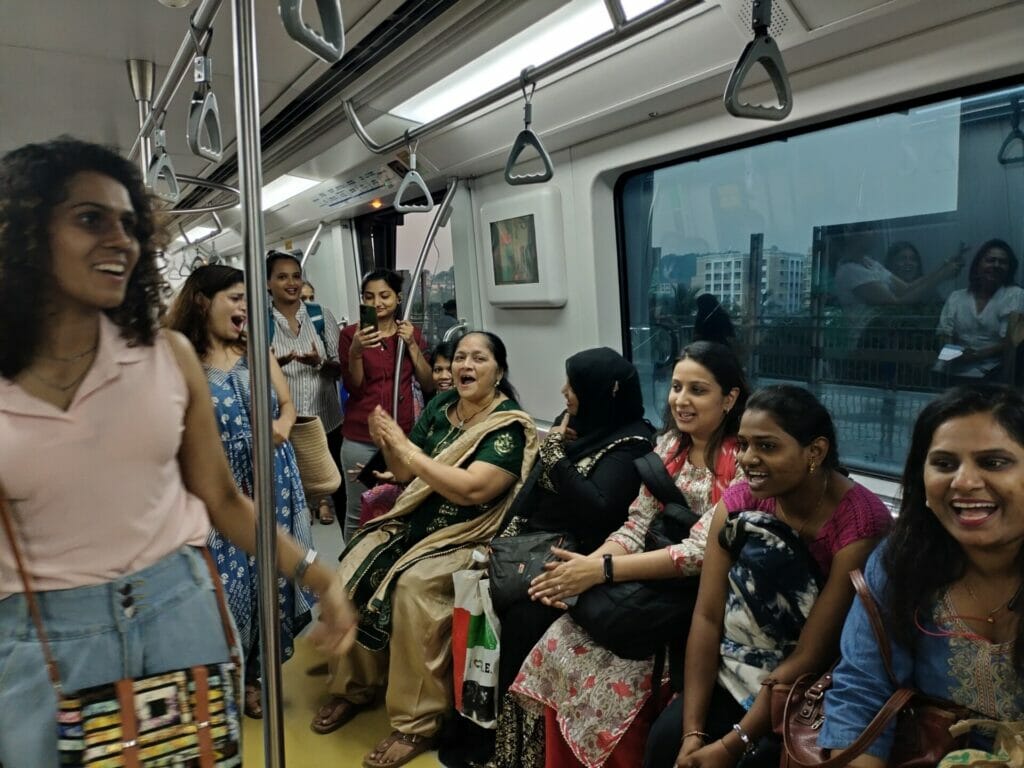
The right to loiter
Playing antakshari in the metro that Sunday was not something I came upon by random chance. I’d noticed the open invite for it on the Why Loiter? campaign’s social media for a second time this year, and it was intriguing enough the first time around. I took the train and the metro to Versova station, all the way to go the round trip in Mumbai’s only complete metro line to Ghatkopar and back.
The campaign argues in favour of women ‘loitering’ – reclaiming public spaces by accessing them for leisure, in the manner that men do. “What women need in order to maximise their access to public space as citizens is not greater surveillance or protection (however well meaning), but the right to take risks,” write Shilpa Phadke, Sameera Khan and Shilpa Ranade in their book Why Loiter?: Women and Risk on Mumbai Streets, which inspired the campaign of the same name in 2014.
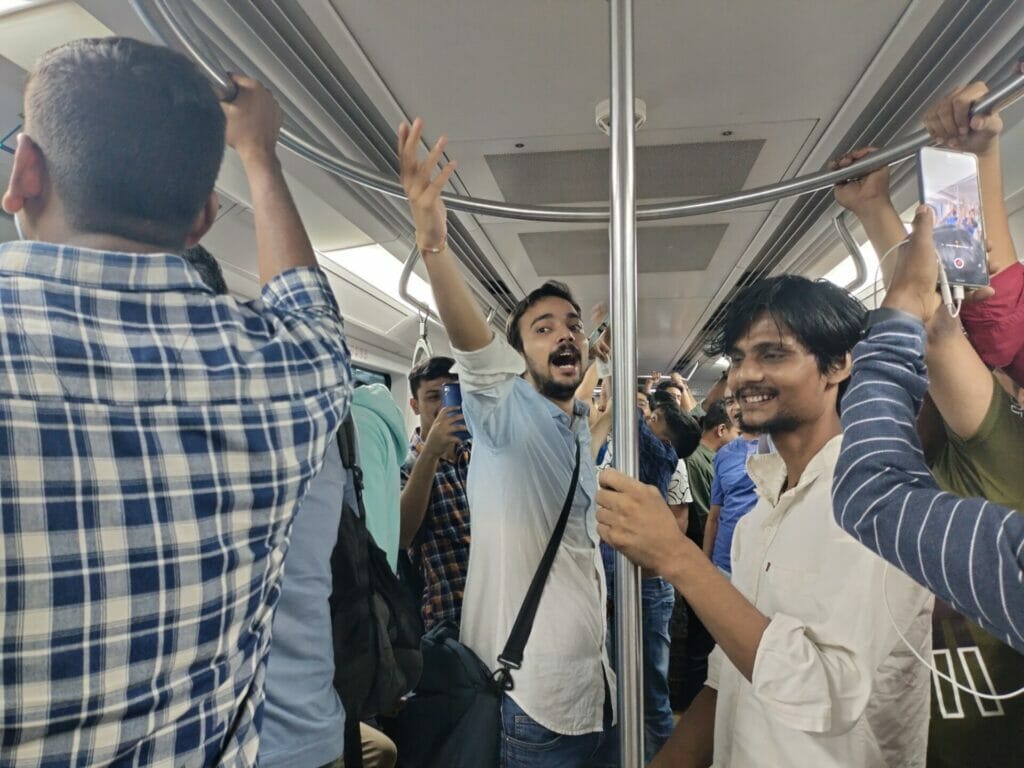
“To do this,” the book continues, “we need to redefine our understanding of violence in relation to public space—to see not sexual assault, but the denial of access to public space as the worst possible outcome for women.”
Jaunts like antakshari in the metro, held often in the city, are an attempt to counter what is implicitly accepted: that men own public space, and women merely pass through. Loitering – with no obvious or economic value on its own – is not something women do.
“But is that a complete life?” asked Neha Singh, campaign initiator, theatre practitioner and author.
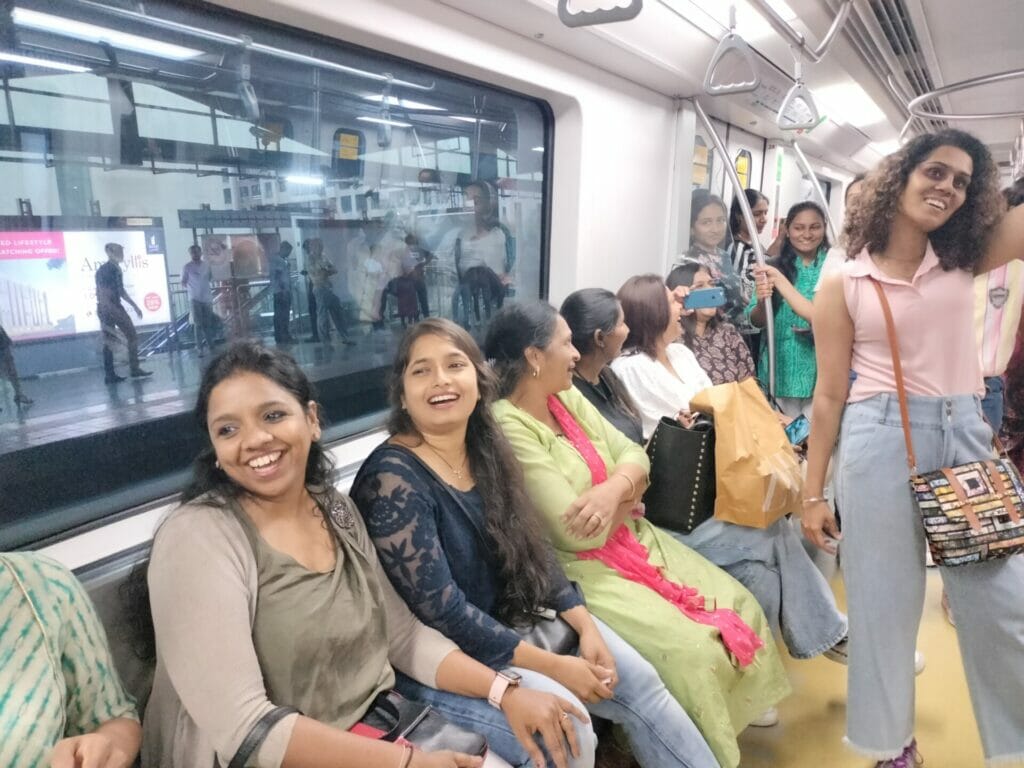
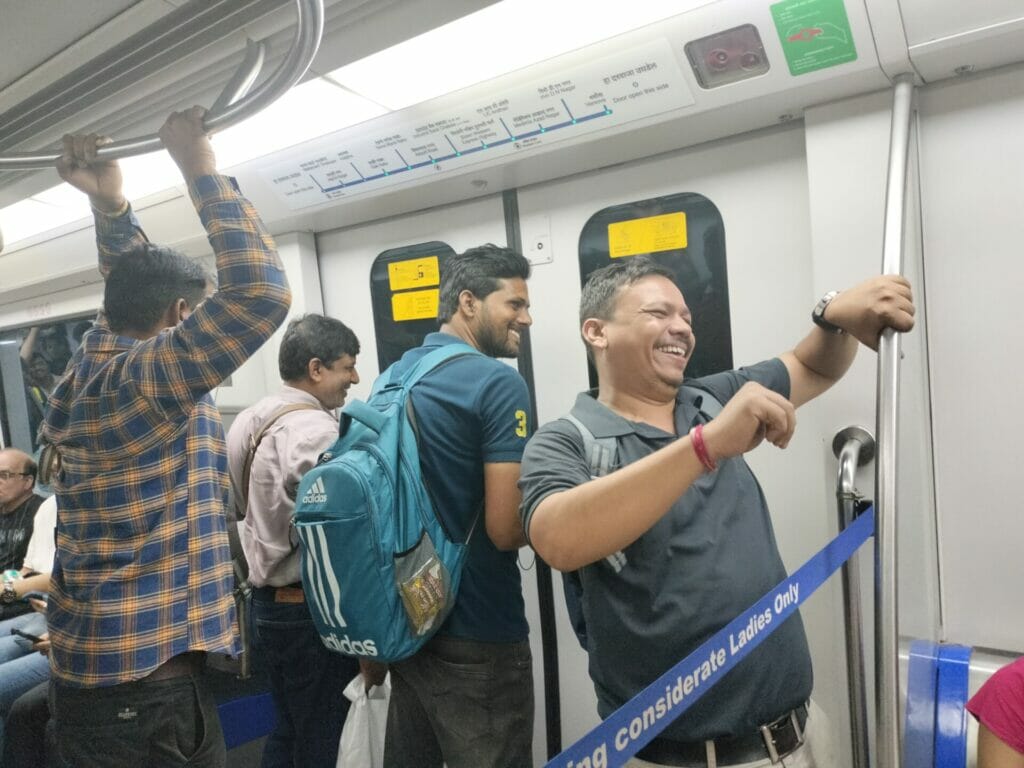
Read more: Discussion: Ensuring women’s safety in Mumbai
Performance for performance’s sake?
Part of my interest in the event came from a fascination with public and performance art. This was really the perfect combination, even if I didn’t know it before going; the metro being a public space, and most of the leading cast theatre performers. And while public singing, whether by beggars or bhajans is not uncommon in India, this was a clarion call to step out of a role. This was not only for women, even if it was asserting something about women.
If I wanted to see how a public space transformed into a communal one, I had to look closely. People’s reactions changed quickly; the second of confusion passed in a blink to be replaced with amusement, enjoyment or just interest. Every time we started the game, it took barely five songs to get many in our teams and fill the coach with song. Men were slower to join the fray, a pattern that was thoroughly dissected after.
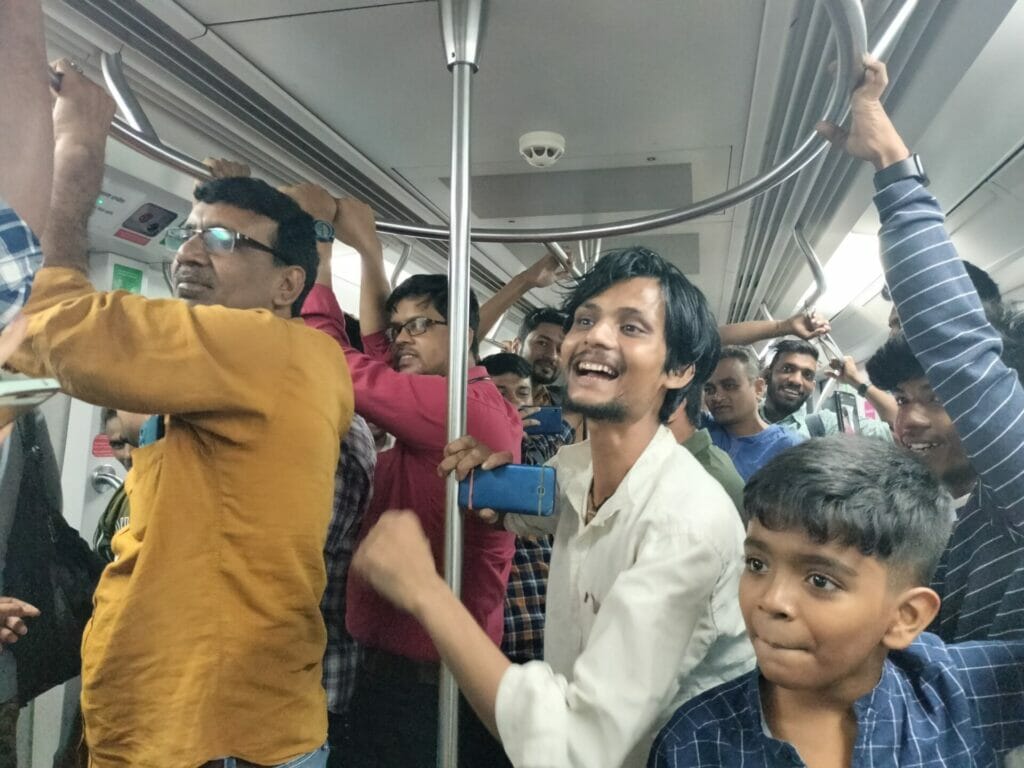
“Main naa bhoolungi..’ is safar ko (I won’t forget this journey),” sang one passenger, completing the Lata Mangeshkar and Mukesh song with her own bent. The metro ride had been a memorable experience for many, invoking nostalgia and a childhood energy dimmed with age. Many passengers thanked the team as the train reached their stop, while many others captured it on their phones.
“Laugh, sing, play, dance, talk to complete strangers for the pure joy of it,” the invite to antakshari in the metro promised, and clearly delivered on. But it goes beyond that.
“If more women take up space and are recognised for doing so, it will become normal,” said Neha. And then, perhaps, we won’t even notice it.
Such a lovely story – made my day. Here’s to women reclaiming public spaces everywhere.